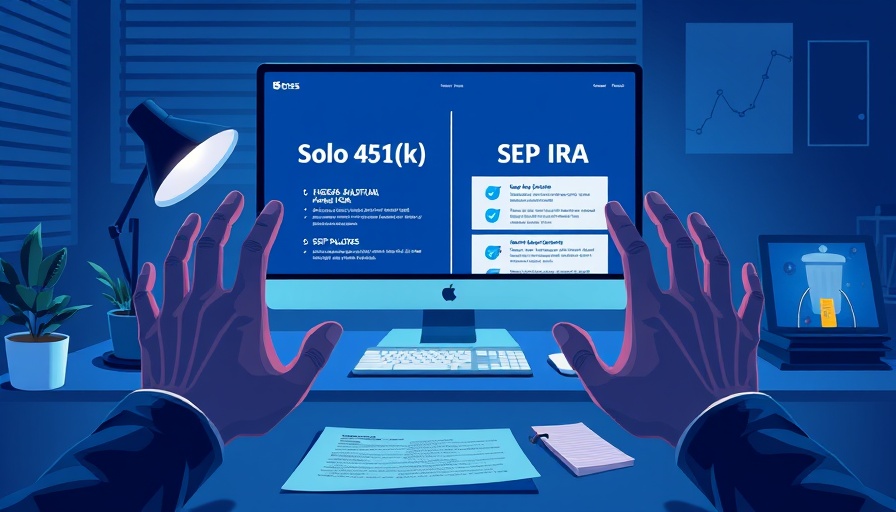
Maximizing Savings: Your Guide to Solo 401(k)s and SEP IRAs
For self-employed individuals, saving for retirement can feel like juggling plates while walking a tightrope. The good news is that options such as the solo 401(k) and SEP IRA offer substantial benefits and vary in how they cater to different needs.
High Contribution Limits: Which One Works for You?
Both the solo 401(k) and SEP IRA provide impressive contribution limits—significantly higher than traditional IRAs. Specifically, if you are over 50, the solo 401(k) offers an additional catch-up contribution, enabling you to invest more as you approach retirement. For super savers, this account also allows for a unique structure that lets you contribute both as an employee and employer, maximizing your savings potential.
Streamlined Administration: Simplicity vs. Customization
The ease of managing your retirement accounts is vital. The SEP IRA is fundamentally easier to set up and requires less ongoing administration. However, those who opt for a solo 401(k) can benefit from modern platforms that handle reporting and compliance, allowing you to focus more on your business rather than paperwork. With companies like Betterment providing dedicated advisors, the heavy lifting can be more manageable.
Flexibility Tailored to Your Business Growth
Both accounts showcase flexibility but cater to different future ambitions. A solo 401(k) allows for Roth contributions while maintaining room for growth should your business expand to involve employees. On the flip side, SEPs adapt more naturally to immediate employee contributions—an essential consideration for any self-employed professional planning to hire in the future.
Decisions You Can Make With This Information
Understanding the nuances of solo 401(k)s versus SEP IRAs is crucial for enhancing your retirement savings strategy. Evaluate your long-term goals and business model carefully. If an expansion is on your horizon, a SEP may suit your needs better. Conversely, for higher contributions and flexibility in saving—which can save you significant tax burdens—you might lean toward a solo 401(k).
Both accounts provide valuable routes to grow your investments, so weigh your choices based on your current financial standing and future ambitions.
As you navigate these financial waters, consider reaching out to a financial advisor to determine the best fit for your retirement strategy. Creating a plan today can ensure a sustainable and comfortable retirement tomorrow.
 Add Row
Add Row  Add
Add 



 Add Row
Add Row  Add
Add 


Write A Comment